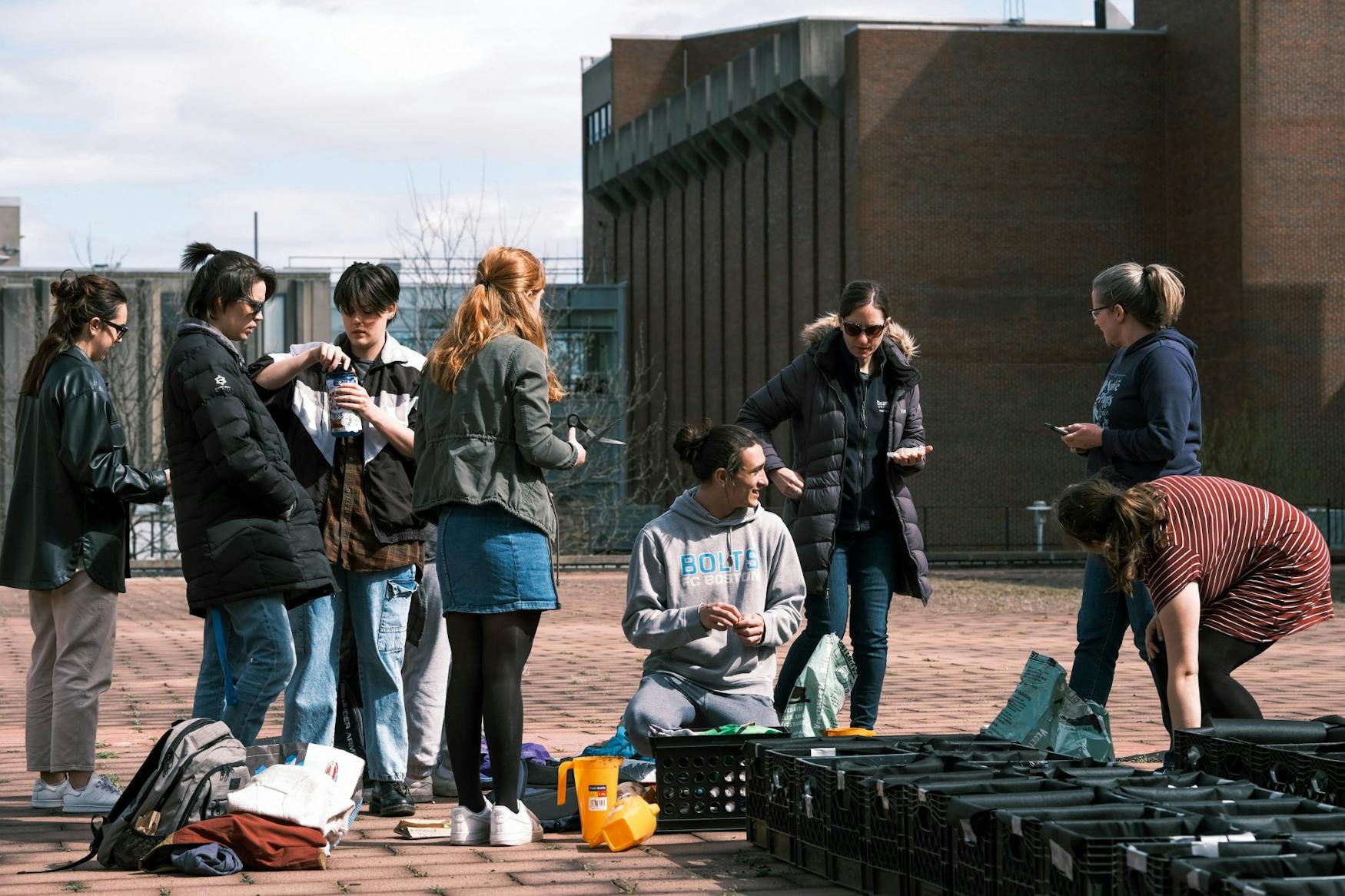Brandeis hosts Earth Week
The week-long series of events aimed to educate students and celebrate the Earth.
Brandeis Earth Week, presented by the Office of Sustainability and the Center for Spiritual Life, was part of an international effort to focus on environmental issues. Earth Week is an extension of Earth Day, which occurs every year on April 22. According to the Earth Day website, the event was founded in 1970 by Sen. Gaylord Nelson (D-WI) who wanted “to infuse the energy of student anti-war protests with an emerging public consciousness about air and water pollution.” In conjunction with Davis Hayes, a young activist at the time, Nelson and Hayes organized a teach-in on college campuses on April 22, 1970. The movement grew until 1990 when Earth Day went international, with 200 million people in 141 countries participating.
On Monday, the week started off with a continuation of Meatless Monday in Sherman and a clothing and book swap in the SCC Atrium. Tuesday featured environmental justice jeopardy along with a screening of Fast Fashion: The Real Cost of Low-Cost Fashion. Prof. Sally Warner (ENVS) led a conversation in Olin-Sang discussing “the science of why we need to reduce carbon emissions” as well as “the most impactful actions (both personal and systemic)” according to the Brandeis Earth Week schedule. On Thursday students were encouraged to make their own pot and plant a seed to grow plants in their rooms. At the close of Earth Week, Larry Spotted Crow Mann, an “award winning writer, poet, Native American Culture educator, Traditional Story Teller, Tribal Drummer/Dancer, and Motivational Speaker,” according to the Massachusetts Center for Native American Awareness, hosted “When the Land Speaks: A Journey into the Stories, Songs and Culture of the Living Presence of Nipmuc People'' in the Shapiro Campus Center. Additionally, Brandeis Dining featured Future 50 Foods at Sherman and Lower Usdan throughout the week.
The Future 50 Foods come from a report done by the World Wide Fund for Nature and Knorr, a large German food and beverage brand. The report examined a “collection of diverse plant-based foods from around the world that can boost the nutritional value of our meals whilst reducing the environmental impact of our food supply.” The report highlights some well known foods such as lentils, wild rice, and kale, as well as lesser known foods such as fonio, pumpkin flowers, and cactus. This week, the dining team focused on lentils, black turtle beans, amaranth, quinoa, as well as okra and broccoli rabe, along with other types of beans and green vegetables.
Michael Reilly, the Resident District Manager of Sodexo at Brandeis, said in an email to the Justice that the dining team worked with Nolan Reese, the campus dietitian, to create the menu during Earth Week. In the email, Reilly said that their “goal was to feature ingredients from the list with the most versatility and would be widely enjoyed by students.” He added that “many, if not all of these ingredients are used on a regular basis and are part of our commitment to reducing our carbon footprint.”
Another part of this week’s activities was Weeding with Herbicide Free Brandeis, a group that is part of a larger campaign, Herbicide Free Campus, which currently has chapters in seven universities, including Brandeis. Brandeis’ group, along with the larger campaign, aim to “eliminate the use of toxic herbicides and to transition to organic land care at Brandeis University,” according to the Herbicide Free Brandeis’ Instagram. Their Earth Week event took students to the lawn next to the Brandeis Library, where they were encouraged to pick dandelions and garlic mustard, which were then turned into dandelion flower tea and garlic mustard pesto.
One of the event organizers, Gabo Torres ’23, who is from Ecuador, said that growing up he was “exposed to a lot of nature and biodiversity” which gave him a perspective on nature that made him want to “try and protect it.” In regard to Herbicide Free Brandeis and the event that was part of Earth Week, Torres said he was “always somewhat interested in agriculture and sustainable agriculture.” While weeding is not the only thing the group does, they have organized multiple “Weeding Days” together with the grounds crew within the past year to try and reduce the need for herbicides on campus.
Charlene Duong ’23, another one of the event’s organizers, said that joining Herbicide Free Brandeis has “changed [her] perspective on what weeds are and what they represent.” Duong said that for her, the event aimed to “rethink the way we interact with weeds on campus and … to educate people on what we can do with weeds.”
Lily McCarthy ’24, an attendee of the event and an Environmental Studies major, said that for her, “Earth Week is a time to take advantage of the fact that we can be outside and we can take care of the Earth while we have the time.”
Earth Week at Brandeis ended with Earthfest, “a celebration of the spectacular Earth to which we belong” according to Brandeis’ Earth Week 2022 website, which included hands-on activities such as rooftop planting and revitalization on the roof of the Gerstenzang Science Library.



Please note All comments are eligible for publication in The Justice.